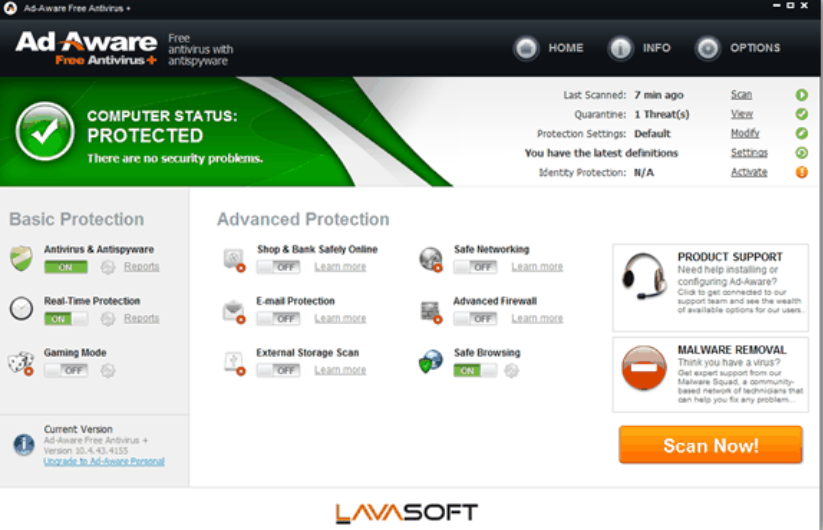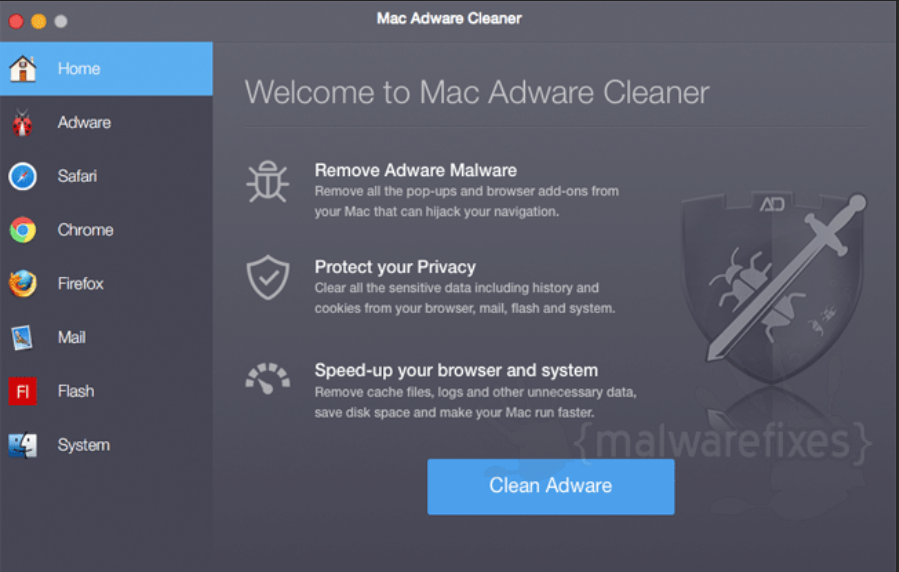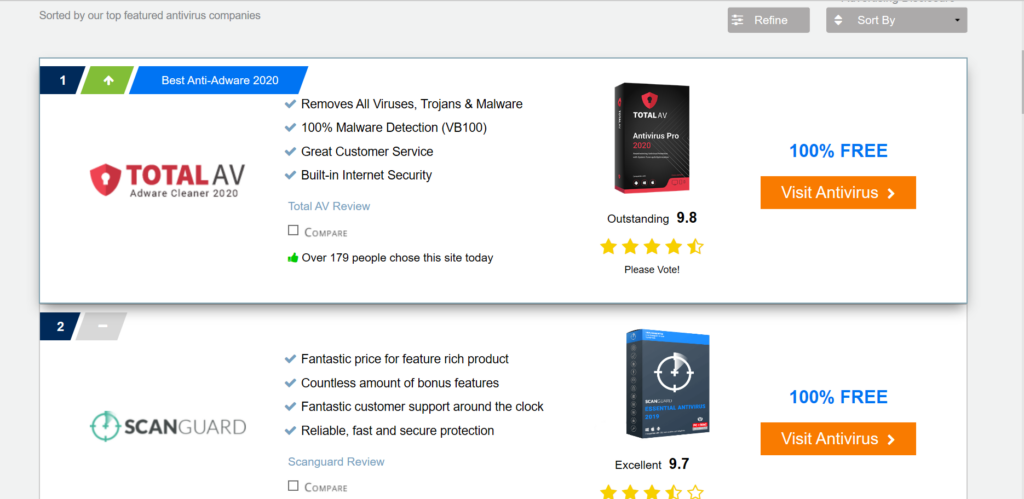Is Adware Safe? Adware and Security Threats
Adware is also known as advertisement-supported software. Creators of adware include advertisements or help distribute other software to earn money.
In many cases, ads may be within the software itself. Alternatively, the adware may encourage you to install additional software provided by third-party sponsors.
Adware programs exist across all computers and mobile devices. Most of these are perfectly safe and legitimate, but some might have dark motives that you are unaware of.To purchase the security software, you can go to the website like X-Tech Buy.
You might opt to download adware if you want:
- Free computer programs or mobile apps.
- Personalized ads tailored to your wants and needs.
- To try the software that comes bundled.
Adware creators and distributing vendors make money from third-parties via either:
- Pay-per-click (PPC) — they get paid each time you open an ad.
- Pay-per-view (PPV) — they get paid each time an ad is shown to you.
- Pay-per-install (PPI) — they get paid each time bundled software is installed on a device.
The sponsoring third-parties benefit from adware by:
- Gaining more users for their software.
- Showing their products or services to more potential customers.
- Collecting data about you to create more effective custom marketing adverts.
Together, this is what makes adware profitable and beneficial for you and all people involved.
By definition, adware is not inherently malicious. However, the intentions of the paying advertiser, a secondary paying distributor, or the creator may be less safe. Plus, it can be a gateway for malicious acts, like malware infection or spying on your digital habits.
Although some adware can be considered “good adware,” meaning that it does not do damage to your computer system, collect then redistribute information about you, or cause annoying pop-ups or advertisements outside of the program you downloaded it with, some adware can also be considered “bad adware” because it poses a threat to you or your computer.
Most adware is at least marginally annoying because it displays advertisements in your private space (ie: your computer). But while some adware only displays ads in the program you downloaded it with, other types of adware can also create pop-up ads on your desktop and even change your computer setting in aggressive advertising schemes. While this is not a threat to you, it is a huge annoyance.
Other annoyances that may come with adware are certain changes in your internet setting like your home page being changed and additions to your favorites list you didn’t make. These are usually promoting the same types of products and websites that the adware’s advertisements are promoting.
Adware my also slow down your computer because it uses system memory. It may also slow down your internet connection by using up bandwidth to retrieve advertisements. The stability of your system may also be compromised, because adware often has below-standard programming.

Adware vs Malware vs Spyware
Adware can sometimes be incorrectly labeled as malware or spyware. Cybersecurity companies don’t label all adware as a threat because some are perfectly safe and reputable.
However, some adware does pose a risk that can introduce a threat to your devices. When you’re discussing adware, you might wonder “what is the difference between malware and adware,” or “what is adware and spyware?”
Malware is malicious software designed to disrupt, corrupt, or steal information from computer devices. This includes threats like viruses, spyware, ransomware, and other malicious code.
Spyware is a type of malware that acts as a window to monitor your device without your permission.
If you somehow have also been a target of the hackers, you must approach a reliable cyber security expert like BITS.
Adware is not in itself malware, however, it may be equally unwanted in some cases. It can sometimes assist in the delivery of malware, which may often include spyware. Adware can just as easily be harmless and respectful, whereas others might be invasive and irritating.
Adware’s Connections to Spyware
Certain adware can be much more threatening than the average adware because of its close connections to spyware. Spyware is software designed to download itself onto your computer by piggybacking on other programs for the purpose of tracking your computer and internet activities and sometimes even recording personal information about you. Spyware can be a major security threat. Adware that displays advertisements on your computer but also tracks your activities and reports or sells your profile information to a third party without your consent can be considered spyware.
Not all adware does these types of thing. While some adware may monitor your web surfing activities for the purpose of tailoring its ad content to your tastes, it may not sell or report this information to any other party. However, it is hard to tell exactly what adware is doing with your information, and many adware programs are really spyware in disguise.
Good Adware vs. Bad Adware
Good (or non-threatening) and bad adware can often be told apart by the way they visibly interact with your system.
| Good Adware | Bad Adware |
|---|---|
| Only installs itself on your system if you give consent for it to do so | Installs itself secretly without your consent |
| Allows itself to be uninstalled, usually through the “Add/Remove Programs” section in your control panel | Is difficult or impossible to uninstall |
| Displays unobtrusive advertisements inside the applications that it is downloaded with | Installs itself in other programs or changes your web browser settings so it can display more ads while you are surfing the internet |
| Does not collect your personal information or monitor your activities | Monitors your activities or collects your personal information and can sell this information to third parties |

How to protect yourself from Adware PUA and Malware
Preventing adware is the best way to avoid having to deal with these issues in the first place.
Practicing healthy upkeep of your computer and behaving safely is good for your security as a whole. In general, you’ll be more protected against all cyber threats if you:
- Keep all software updated. The most recent updates for your apps, system drivers, operating system (OS), and other software have security fixes in them. Developers constantly discover vulnerabilities and patch your software to protect you from threats.
- Be cautious, not curious. In the digital world, treat anything unknown or unusual as a potential risk. Hackers take advantage of everything from USB charging stations to impersonating your friends on social media to infect you with adware and malware. Always ask yourself, “what’s the worst that can happen if this is bad,” and take caution.
- Watch for the fine details. Whether it’s a legitimate program installation or a link in an email, always pay attention to what you’re opening or accepting. Criminals try to mimic trusted URLs, email addresses, and social media profiles to catch you off guard. If you take a moment to examine these, you’ll find odd details that are red flags for scams.
- Keep your activities legal. Aside from the obvious risks, pirating media and software puts you closer to seedy criminals that take advantage of your desire for “free stuff.” These services might encourage adware installs or are carrying infected downloads — whether they know it or not.
When you’re downloading free computer software, mobile apps, or browsing the web:
- Always read all terms and checkbox agreements before clicking “next” during software installation. Many sponsored third-party software is opt-out, meaning you’ll have to uncheck a box to avoid installing any accompanying PUA.
- Only download programs from trusted, reputable sources. You should try to only download from brands you recognize. Be sure that they have a trustworthy history as well. Official app stores like Google Play are not completely free of malicious apps, but they are more likely to keep you safe.
- Read reviews. Everything from browser extensions to computer programs should have reviews somewhere online. Search for user feedback and take note of the negatives.
- Look before you click (or tap). Some ads rely on social engineering to take advantage of unintended clicks. Fake close buttons carefully placed confirm buttons, and spontaneous popups all get you to click an infected link. Be sure to avoid falling for it.
If you have antivirus security software like Kaspersky Total Security, you already have one of the best solutions to protect against adware. To secure your home computer well, you are suggested to contact your local computer expert like “Computer Repair Onsite”.
Because security software actively guards against malicious or PUA app downloads, scans attachments and links, and blocks popups. Your behavior in the digital world is your first line of defense. However, cybersecurity programs are essential when it comes to protecting yourself against adware threats.

